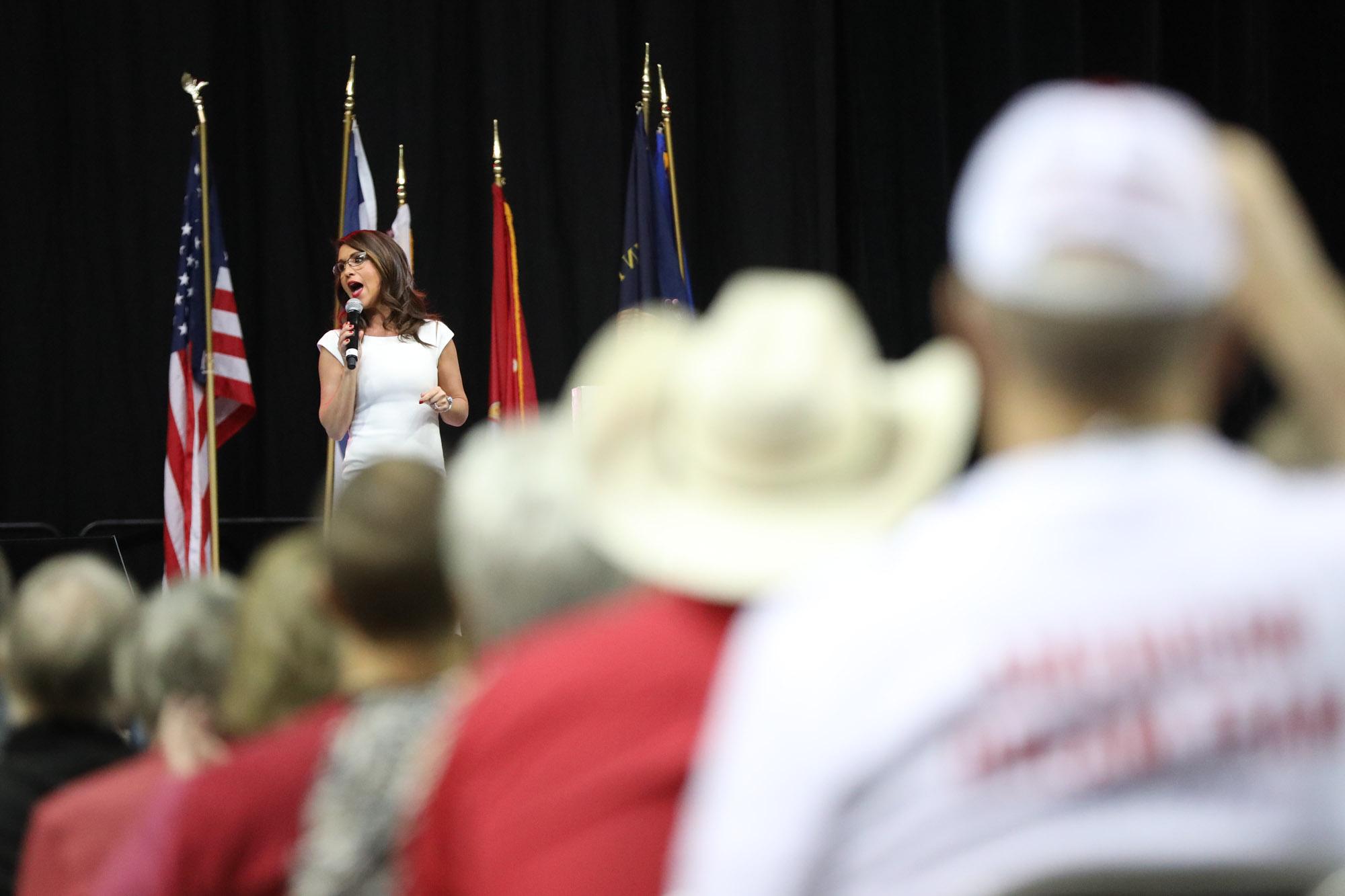
Updated Jan. 4, 2022 at 7:15 a.m.
It was an inauspicious start to the 118th Congress.
What should have been a big day for Republicans as they took the majority in the U.S. House of Representatives, has instead showcased a divided caucus that has failed to coalesce behind Republican Kevin McCarthy to be the next Speaker.
For the first time in a hundred years, a candidate was not elected on the first ballot. Instead, the House adjourned Tuesday evening still stalemated after three rounds of balloting.
While Colorado Republicans Reps. Ken Buck and Doug Lamborn joined more than 200 colleagues to vote for McCarthy, conservative Rep. Lauren Boebert is one of 20 Republicans voting for someone other than McCarthy. Boebert has thrown her support behind GOP Rep. Jim Jordan of Ohio, who was voting for McCarthy.
House Republicans hold a slim majority in the chamber with 222 members. McCarthy needs to secure the support of 218 of them to get the speakership.
Boebert has been one of the conservative members quietly involved in several of the discussions held by McCarthy and other groups within the GOP caucus over potential rules changes that might win her support and get McCarthy to 218.
She and other House Freedom Caucus members met with McCarthy Monday night. During a GOP conference meeting before the start of the day Tuesday, McCarthy reportedly said opponents came to him Monday night with personal asks, a charge Boebert vehemently denied.
“We didn't offer up a personal wishlist. We were told to provide lists of what members need to be seated on what committees. And we did exactly that,” she said at a Freedom Caucus press conference. “I want to make it very clear. We offered a deal, there were personnel requests because personnel is vital in the absence of trust, personnel is policy. We made the deal, the deal was rejected.”
It has been widely reported that Boebert responded to McCarthy’s speech in the conference meeting and his mention of the asks with the expletive, “b—sh—”.
Asked about the incident afterwards, Boebert said coyly, “A lady never tells.”
Lamborn said after the second vote that the 200-plus members voting for McCarthy are digging in. He said they think “it would be like the tail wagging the dog” if they allow the McCarthy detractors win. As he cast his second vote, Lamborn said, “As long as it takes, McCarthy.”
After adjourning for the day, Buck left the chamber hopeful that the GOP conference will be able to unify. He noted that Monday night the sides were just a tiny bit apart. “We went through this exercise today, so I’m hoping that they meet again and that they get an agreement.”
As for Tuesday’s Republican disarray, Buck said people might care about this today, “but in three months, I don’t think they’re going to care very much. And in 14 months when we have another election, they’re going to care a lot more about results… The issues are going to be a lot more important than what we’re dealing with right now.”
For her part, Boebert put blame for the inauspicious start to the session at the feet of McCarthy, not the handful of holdouts.
“I want a unified Republican conference,” she said. “That is what I have been working towards for months. I walked into Leader McCarthy’s office last night and said, ‘I have you 218 votes. Here’s the gavel, first ballot.’ I want a unified Republican party so badly, and he rejected it. That’s on him.”
Boebert has said she wants to see the ‘motion to vacate’ rule changed to allow a single member to start the process to remove the House Speaker. It was something the majority of the Republican caucus voted against in the fall, instead voting that a majority of the conference should have that power.
In proposed conference rules, McCarthy lowered the threshold from a majority to five members being able to call for a motion to vacate.
It was this parliamentary procedure that undid former GOP House Speaker John Boehner. When Nancy Pelosi became Speaker again in 2019, she changed the rule so that a majority of the caucus must agree before attempting to remove their leader.
The motion to vacate may be Boebert’s red line, but there are other rules changes she’d also like to see considered, according to a spokesperson. Those include making it a House rule that any amendment with at least 20 percent support by the caucus will be brought to the floor (a policy that currently exists as a GOP caucus rule), a single subject rule for legislation and seeing more Freedom Caucus members hold committee gavels. Currently, only one member does.
McCarthy’s proposed rules do include single subject, as well as other changes designed to appease the more conservative members of the caucus. Those include reinstating the CUTGO rule, meaning any mandatory spending increases will have to be offset by cuts. The rule change would replace a practice known as PAY GO, which requires Congress to offset the cost of spending increases, but allows more flexibility. Another rule change would once again require a three-fifths supermajority to approve any increases in tax rates.
The proposed rules would also mandate at least 72 hours between the release of bill text and a final vote, as well as allow committee chairs to bring bills voted out of committee to the House floor for an open amendment process, again with 72 hours of notice.
As voting drags on, it’s unclear who else in the caucus would be able to get the support of 218 fellow Republicans.
It’s been 100 years since there was a Speaker of the House election that required multiple ballots. Without a Speaker, the new members can’t be sworn in, and the work of the House will be delayed as the process for seating committees stalls.









